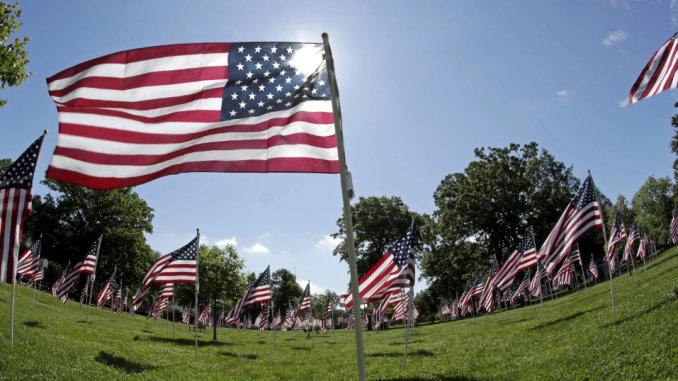
Politics is more polarized than it has been in a generation. With an acrimonious presidential election looming in 2024, it seems like there is little that can bring together the Left and Right. Sadly, it’s also true that political violence is skyrocketing . It feels as though the country is entering a period of political crisis.
The results of a new poll by YouGov and the University of Texas at Austin’s Civitas Institute point to this growing sense of crisis. Sixty-two percent of those polled said the country is headed in the wrong direction. Thirty-nine percent said democracy is not working for the United States. Overall, it paints a bleak picture of what the public is thinking about our future. Public trust in institutions and leaders is in a state of decay.
But here’s the good news: The Civitas Institute’s poll shows that the way to reunite people is to rally around our founding principles. Fifty-five percent of those polled said America is the greatest country in the world, and across the board, the public affirms the importance of the Bill of Rights. Our Constitution is still a set of shared principles about liberty and justice — and if we want to bring the country together around a vision of a brighter future, it must be rooted in this civic heritage.
Public figures ought to keep this in mind as they respond to the crisis of trust facing our government. They can start by toning down their rhetoric, abandoning culture war cliches in favor of genuine deliberation. Officeholders should be partners in the pursuit of the common good, not relentless antagonists. For the Constitution to work, it demands that our leaders respect the limits we, the people, put on them.
But even more foundationally, this Civitas Institute poll points to the need for revitalized civics education. People need to understand the roots of our political order, namely through the serious study of the founding. At another time, most Americans knew by heart the words of the Declaration of Independence, the Federalist Papers, and Abraham Lincoln’s speeches. The American political tradition was a source drawn upon by Left and Right alike, a common ground statesmen and citizens stood on as they considered which policies to enact.
The political tradition has been slipping away from us, though, in no small part because of its shocking neglect in K-12 classrooms. Eighth graders are scoring record lows in civics and American history tests. And clearly, that is because civics classes are an afterthought in most education policies. By way of example, for every $5 spent on STEM classes, the federal government only spends $0.50 on civics. We just are not investing what we need to prepare our students to be good citizens.
States need to reemphasize civics education. They should spend resources to train teachers to teach their students through primary source documents. They should encourage the study of local history and culture. And as the 250th anniversary of the United States’s independence approaches, they should try to integrate curricula around the foundational principles of our country.
There are ways to improve civics education at the college and university level, too. Across the country, state legislatures are establishing new civics institutes at public universities to revitalize this kind of education. For some time now, humanities and social science departments have been fending off major spending cuts and declining market interest, but these new civics institutes are receiving tens of millions in new funding for precisely those fields.
The Civitas Institute is a good example of how successful this mission can be. Just last week, the institute’s president, Justin Dyer, was promoted to be the first dean of UT Austin’s brand-new School of Civic Leadership. This new school will provide students with exactly the kind of education people need to lead our way out of the crisis of public trust.
So, while it is indisputably true that politics is divided, our shared political tradition should give us hope. At the outset of the Constitutional Convention, George Washington is supposed to have said: “Let us raise a standard to which the wise and the honest can repair.” As this Civitas Institute poll shows, people are still willing to rally around that standard.
* Article From: The Washington Examiner